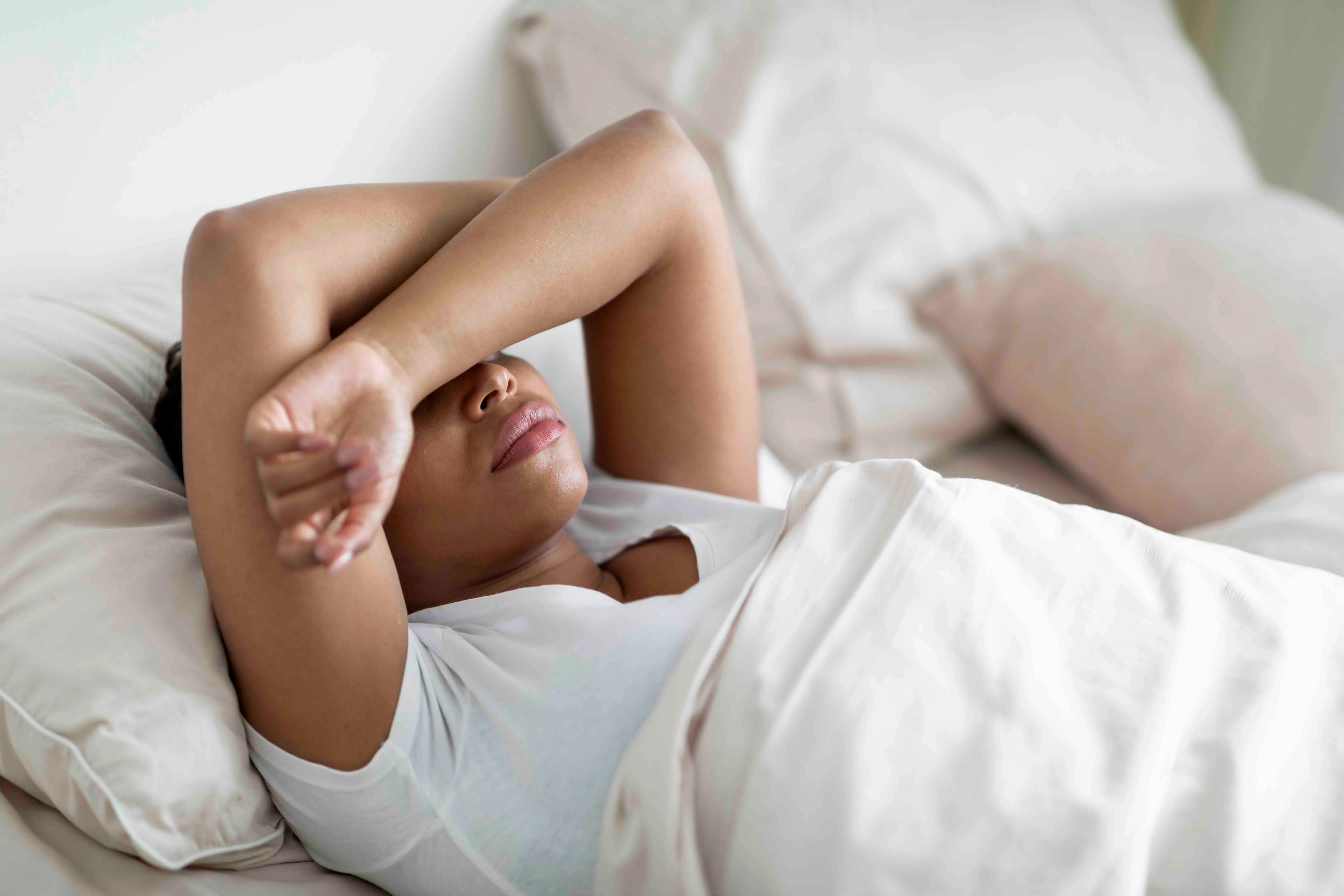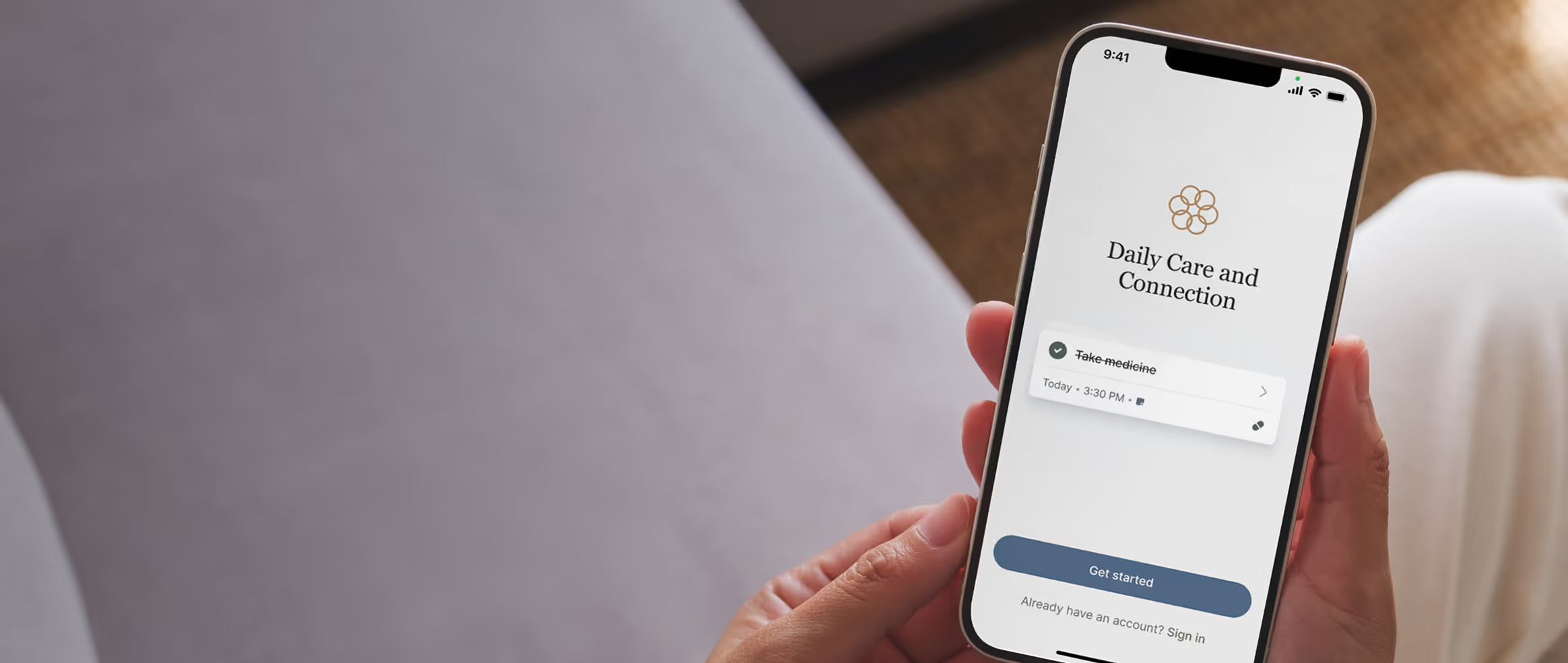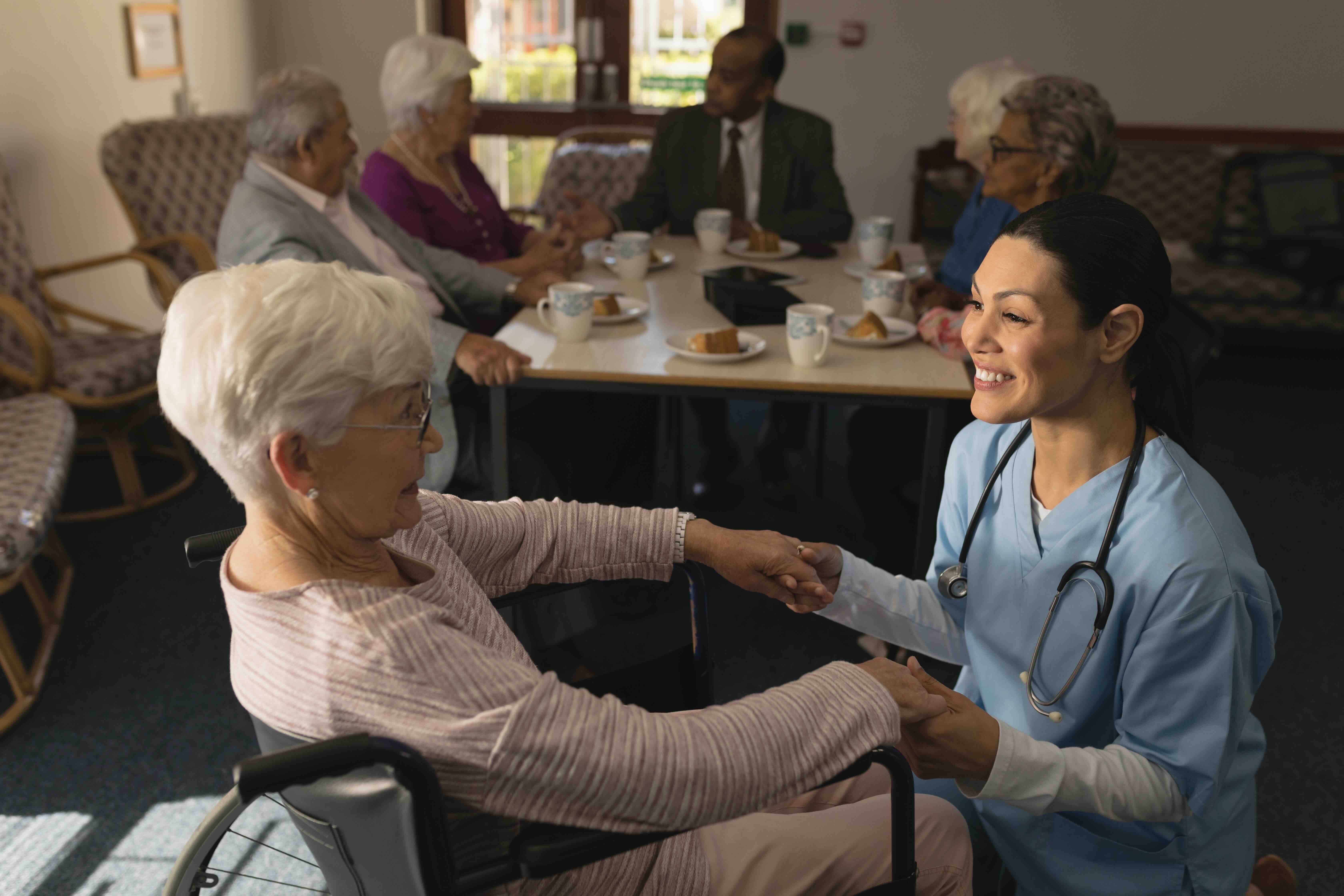Sleep Hygiene Tips for Caregivers

This site uses affiliate links that may result in commissions.
Caregiving is one of the most selfless roles a person can take on, but it’s also one of the most exhausting. Whether you’re supporting an aging parent, a child with special needs, or a loved one with a chronic condition, chances are your sleep has suffered along the way. Irregular hours, stress, and nighttime responsibilities can make it nearly impossible to maintain healthy rest routines. Add in other daily obligations like work schedules (and maybe even taking care of yourself?), and you may feel endlessly exhausted, never able to fully recharge.
Enter sleep hygiene: a set of behavioral and environmental practices that can improve sleep quality and overall well-being. For caregivers, good sleep hygiene isn’t a luxury, it’s a lifeline.
In this post, we’ll walk through the fundamentals of sleep hygiene and provide realistic, actionable sleep hygiene tips for caregivers. Whether you’re new to caregiving or have been in the trenches for years, these strategies can help you feel more rested, alert, and resilient.
Understanding Sleep Hygiene
Sleep hygiene refers to the habits, routines, and environmental factors that influence your sleep quality. Just like dental hygiene helps prevent cavities, sleep hygiene helps prevent insomnia, fatigue, and mental fog.
Key Components of Sleep Hygiene
Even though every living being requires sleep, it can be an elusive and complicated fact of life. Just as going to sleep isn't as simple as laying down and closing your eyes, sleep hygiene consists of multiple parts.
These key parts include:
- Consistent sleep and wake times
- A calm, dark, and cool sleeping environment
- Avoiding stimulants like caffeine or electronics before bed
- Winding down with relaxation techniques
Poor sleep hygiene is often at the heart of chronic sleep issues. This is especially true for caregivers, whose routines are often disrupted by middle-of-the-night caregiving tasks like food, water, or trips to the bathroom. General stress and anxiety can be a huge factor keeping you awake as well.
Shifted circadian rhythms (your body's internal clock), as a result of inconsistent sleep times, can wreak havoc on your body and make it difficult to go to sleep even when you do get the occasional break. And then of course, there's the challenge of sleep in in non-optimal environments, like on a couch or next to noisy medical equipment.
By building better sleep hygiene practices, caregivers can create a healthier foundation for rest, even when circumstances are less than ideal.
Sleep Hygiene for Caregivers
These caregiver sleep improvement strategies are tailored to fit the unpredictable nature of caregiving. You may not have full control over your schedule, but even small tweaks can lead to better sleep over time.
1. Establish a Consistent Sleep Schedule
Even if your caregiving duties vary, try to anchor your sleep and wake times as consistently as possible. Your body's rhythms thrive on routine.
Set a target bedtime and wake time window (e.g., go to bed between 10–11 PM, wake between 6–7 AM). Use alarms and reminders to help stick to it. If you can’t control your overnight hours, focus on consistency in your daytime nap or rest periods. Check out our interview with Sleepably founder Seth Davis, in which he sings the praises of a strategic micro-rest.
2. Create a Restful Environment
The bedroom should be your sleep sanctuary, but for caregivers that’s not always possible. If you share your sleeping space with a loved one who needs care, or if you’re sleeping in a temporary location, do your best to optimize what you can control.
Sleep hygiene practices to try:
- Use blackout curtains or an eye mask to reduce light.
- Try a white noise machine or earplugs to block out sound.
- Keep the room cool; around 60–67°F (15–19°C) is ideal.
- Make your bed as comfortable as possible: invest in a quality pillow or weighted blanket if helpful.
Caregiver sleep tips: If you sleep in shifts or nap during the day, a sleep mask and noise-canceling headphones can mimic nighttime conditions, tricking your brain into rest mode.
3. Limit Stimulants Before Bedtime
Stimulants like caffeine, sugar, nicotine, and screens can delay sleep and reduce its quality. For caregivers running on fumes, that late afternoon cup of coffee can feel essential, but it might be sabotaging your sleep.
Sleep hygiene checklist for evenings:
- Avoid caffeine after 2 PM.
- Skip alcohol before bed; it may make you drowsy but disrupts sleep later.
- Shut down devices 30–60 minutes before sleeping.
- Enable “night mode” on phones to reduce blue light exposure.
Caregiver sleep tips: Use a wind-down alarm on your phone to remind yourself when to disconnect. Consider using this time for relaxing offline activities like reading or journaling.
4. Incorporate Relaxation Techniques
Many caregivers go to bed feeling wired but tired, physically exhausted but mentally overwhelmed. Building in short relaxation techniques can help ease the transition from chaos to calm.
Some effective pre-sleep strategies:
- Deep breathing: Try box breathing (inhale for 4, hold for 4, exhale for 4, hold for 4).
- Progressive muscle relaxation: Tense and relax each muscle group from head to toe.
- Gentle stretching or yoga: Focus on slow, fluid movement and breath.
- Guided meditations: Apps like Calm or Insight Timer offer sleep-specific options.
Caregiver sleep tips: Even just 5 minutes of intentional relaxation before bed can significantly lower cortisol levels and signal to your body that it’s time to rest.
Addressing Common Sleep Challenges
No number of good habits can completely eliminate the disruptions that come with caregiving, and there will of course always be surprises along the way. However, there are ways to adapt and respond to those challenges.
Managing Nighttime Duties
If you’re frequently waking to provide care, consider how to reduce the impact of interruptions:
- Use motion sensor lights instead of turning on harsh overhead lighting.
- Prepare supplies in advance to shorten time awake.
- If possible, split shifts with another family member or caregiver using Caily's shared Schedule.
- Explore assistive technology, like bed alarms or remote monitors, to reduce physical check-ins.
Dealing with Stress and Anxiety
Chronic stress is a leading cause of poor sleep. Caregivers often carry emotional burdens, like guilt, grief, or frustration, which tend to surface at night.
Sleep hygiene strategies for emotional support:
- Keep a journal by your bed to vent and give voice to your worries.
- Practice gratitude by listing 3 small wins from your day.
- Try cognitive reframing: challenge anxious thoughts with neutral or positive alternatives.
- Connect with peer support groups to talk through emotions in a safe space.
Caregiver sleep tips: Don’t ignore emotional exhaustion. Just as your body needs sleep, your mind needs recovery. If anxiety or depression is ongoing, speak to a therapist or mental health provider.
Resources and Support
Better sleep begins with better tools, and you're never alone. Here are some resources tailored for caregivers looking to improve their sleep hygiene.
Sleep Hygiene Checklist
Download a printable checklist that includes:
- Daily habits to support sleep
- Evening wind-down routines
- Environmental tweaks
- Red flags for professional help
Support from Caily
At Caily, we know how overwhelming caregiving can be. That’s why our caregiving platform is designed to reduce stress, so you can rest easier. We built our app with features like:
- Task delegation to lighten your load
- Secure document storage to reduce administrative stress
- Messaging features to streamline communication with care teams and family
- Mood and wellness tracking to monitor how you’re feeling over time
Caily supports your caregiving journey holistically, including your sleep.
When to Seek Professional Help
Sometimes you need some extra help. If you’ve implemented strong sleep hygiene practices like the tips we've collected here and still experience any of these:
- Persistent insomnia
- Excessive daytime fatigue
- Frequent nightmares or disrupted sleep
- Snoring or signs of sleep apnea
Then it may be time to talk to a healthcare provider or sleep specialist.
Get Better Sleep
Sleep isn’t selfish, it’s survival. For caregivers, getting consistent, quality rest is essential to your ability to show up for others and yourself. By incorporating small but impactful sleep hygiene tips, you can improve your energy, mood, and long-term health.
Start with one or two of the strategies above. Notice what helps. Then build on those habits gradually.
Your well-being matters. And with Caily by your side, you don’t have to navigate it alone.
FAQs About Sleep Hygiene
How can I fall asleep faster?
To fall asleep faster, create a consistent bedtime routine that tells your body it’s time to wind down. Here are some proven strategies:
- Stick to a sleep schedule: Try to go to bed and wake up at the same time every day, even on weekends.
- Limit screens before bed: Turn off phones, TVs, and computers at least 30 minutes before sleep. If you still want to read before bed, consider switching to an e-ink screen that doesn't emit blue light.
- Practice relaxation techniques: Deep breathing, meditation, and light stretching can reduce tension and slow your heart rate.
- Create a sleep-friendly environment: Make your bedroom cool, dark, and quiet. Use white noise or blackout curtains if needed.
- Avoid stimulants: Skip caffeine, nicotine, and large meals in the evening.
For caregivers with unpredictable schedules, even small adjustments, like dimming lights and avoiding screens before bed, can help you fall asleep more quickly and sleep more soundly.
What is bad sleep hygiene?
Bad sleep hygiene refers to poor habits and environmental factors that interfere with your ability to fall and stay asleep. Common examples include:
- Irregular sleep patterns, such as staying up late one night and going to bed early the next
- Using screens before bed, which exposes your eyes to stimulating blue light
- Drinking caffeine or alcohol in the evening
- Sleeping in a noisy or uncomfortable environment
- Using your bed for work or watching TV, which trains your brain to stay alert
For caregivers, bad sleep hygiene can often result from reactive routines: waking frequently, falling asleep at odd hours, or skipping wind-down rituals. Identifying these patterns is the first step toward building healthier ones.
How soon will I see the effects of good sleep hygiene?
Some people notice improvements in their sleep within a few nights of implementing better sleep hygiene. For others, it can take a few weeks of consistent changes to see significant results.
Factors that influence how quickly you’ll notice a difference include:
- The severity of your current sleep issues
- Your overall stress levels
- How consistently you apply the new sleep hygiene practices
If you’re a caregiver, progress may feel slow due to ongoing interruptions or stress—but don’t give up. Even small improvements in routine and environment can add up. Better sleep hygiene can lead to more restful nights, improved energy, and better emotional resilience over time.

Get Started Now
Enjoy full access to everything Caily offers, from medication tracking to shared schedules and daily check-ins. See how much easier caregiving can be when everything is coordinated in one place.
Start your free trial



